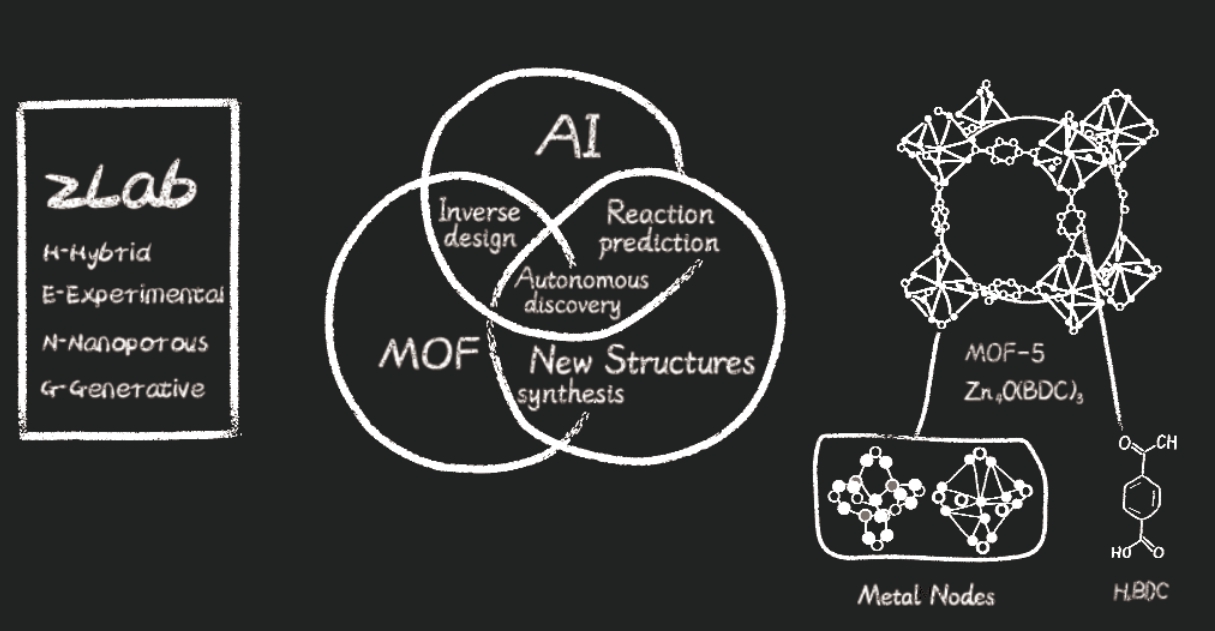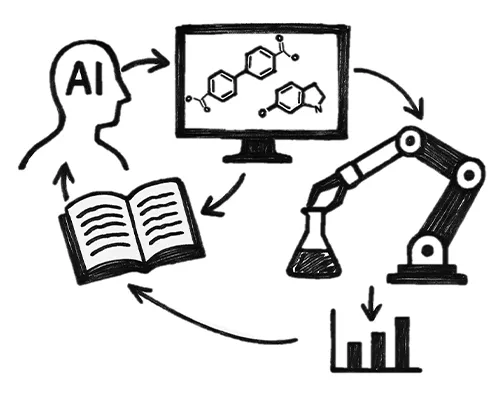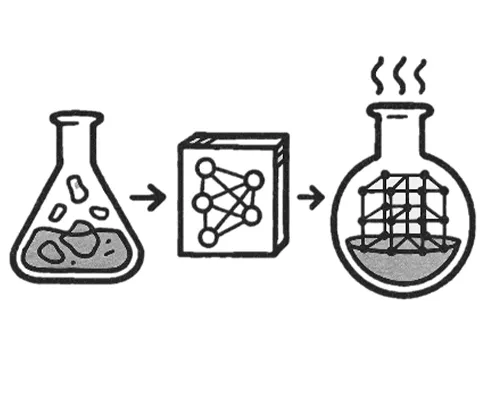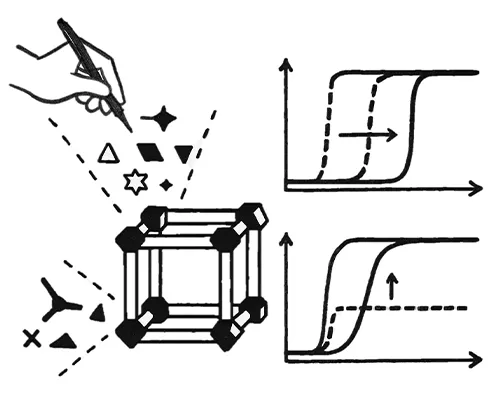Research

The Zheng Group conducts research at the intersection of organic, inorganic, and materials chemistry, powered by modern data science and machine learning tools. We focus on extended frameworks such as MOFs, COFs, and ZIFs, aiming to move beyond trial-and-error by creating AI-driven pipelines that not only predict but also experimentally realize new materials. By uncovering both synthesis–structure and structure–property relationships, we accelerate the discovery of functional materials and aim to lead a future where human–AI collaborative workflows are routinely accessible to all laboratories.
Group members gain a broad skill set spanning synthesis, characterization, and cheminformatics through collaborative research within our lab and with external partners. On the experimental side, members develop expertise in automated, high-throughput synthesis in solution-phase and solid-state systems, as well as characterization techniques including X-ray diffraction and gas sorption analysis to assess material crystallinity and porosity. On the computational side, students leverage multimodal language models, machine learning prediction tools, and optimization algorithms to simulate, predict, and accelerate scientific discovery.
Digital Reticular Chemistry
We are exploring the integration of large language models (LLMs) and autonomous AI agents to transform reticular chemistry research. Chemistry itself is a language, and our AI-driven tools communicate directly with chemists using natural language through low-code/no-code interfaces, significantly lowering the barrier to human–AI collaboration and making workflows user-friendly for experimentalists. Areas and questions we aim to address include, but are not limited to:

- Chemistry-aware AI agents: Can we train multimodal LLM to systematically analyze scientific literature, extract chemical knowledge, establish synthesis datasets, and autonomously predict novel reticular materials?
- Autonomous laboratory integration: Can we link LLM reasoning directly to robotic experimentation platforms, enabling closed-loop autonomous synthesis and characterization?
- Real-time learning: How effectively can agentic systems learn from real-world characterization data and make decisions to guide future experimentation?
Related Publications:
- Large Language Models for Reticular Chemistry, Nat. Rev. Mater. (2025)
- ChatGPT Chemistry Assistant for Text Mining and Prediction of MOF Synthesis, J. Am. Chem. Soc. (2023)
Predictive Synthesis of Framework Materials
Traditional synthesis of crystalline materials relies on extensive trial-and-error experimentation across multidimensional parameters (e.g., temperature, concentration, starting materials’ ratio). Our lab integrates chemical intuition with machine learning to predict synthetic conditions and material properties to address the long standing “crystallization challnges” in reticular chemistry:

- ML-guided crystallization: Can we predict under which conditions metals and organic linkers crystallize into desired frameworks?
- Synthesizibility and interpretability: How can ML tools be designed to clearly reveal learned patterns from data and empower experimental chemists to accelerate new discoveries?
- Transfer synthesis approaches: Can we develop ML models that transfer knowledge across synthetic methods (e.g., heat, microwave, light, or electricity) to access structures otherwise unachievable?
Related Publications:
- ChatGPT Research Group for Optimizing the Crystallinity of MOFs and COFs, ACS Cent. Sci. (2023)
- Integrating ML and LLM to Advance Exploration of Electrochemical Reactions, Angew. Chem. Int. Ed. (2025)
Rational Design and Synthesis of Novel Nano-MOFs
The modularity of reticular chemistry—connecting molecular building blocks into frameworks with predetermined structures and functionalities—offers vast opportunities. We are particularly excited about advancing new design principles and more accessible synthetic methodologies for the following two subclasses of metal-organic frameworks:

- Multivariate and high-entropy MOFs: What strategies can enable the synthesis of single-phase, multicomponent MOFs with finely tuned sorption properties for energy-efficient separations?
- Biocompatible MOFs: How can we design porous materials using benign metals and organic linkers as nanocarriers for biomolecules and therapeutic gases, emphasizing low toxicity and high payload capacity?.
Related Publications: